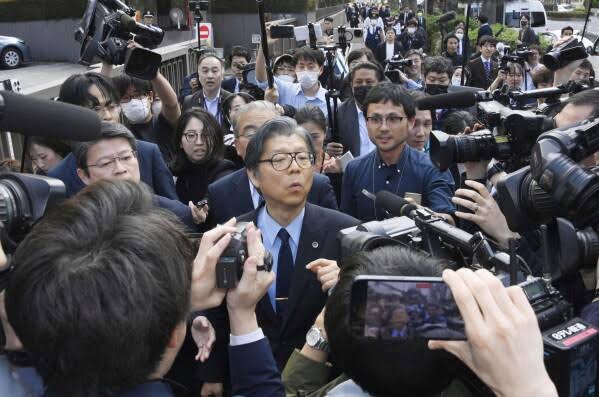Japan court orders dissolution of controversial ‘Moonies’ Church
A Tokyo court has ordered the dissolution of the Unification Church, widely known as the “Moonies,” following allegations that it manipulated followers into making massive financial sacrifices.

File Source: AP News
A Tokyo court has ordered the dissolution of the Unification Church, widely known as the “Moonies,” following allegations that it manipulated followers into making massive financial sacrifices. The ruling comes after intense scrutiny of the church in the wake of former Prime Minister Shinzo Abe’s assassination in 2022, an event that exposed its deep ties with Japan’s political establishment.

Abe’s alleged assassin had confessed that he targeted the former leader due to his links to the church, which he blamed for bankrupting his family. The shocking revelation prompted Japan’s education and culture ministry to seek the group’s disbandment, arguing that it used coercion and fear to extract large donations from believers. The church, however, defended its practices, insisting that the contributions were part of legitimate religious activities. It has the right to appeal the ruling.
With the court order, the Unification Church will lose its tax-exempt status and be required to liquidate its assets, though it will still be permitted to operate in Japan. Investigations found that the group exploited followers’ fears about their spiritual well-being, pressuring them into purchasing expensive items. Authorities interviewed nearly 200 people who claimed to have been victimized by the church.
Founded in South Korea by Sun Myung Moon, the church has maintained a presence in Japan since the 1960s. It has long been controversial, even before Abe’s assassination, due to its teachings that marriage is central to spiritual salvation and its large-scale mass wedding ceremonies. The group’s fundraising practices have also led to legal battles, with nearly 200 former members filing claims since 2023, demanding 5.7 billion yen ($38.5 million) in compensation.
The fallout from Abe’s killing also triggered revelations about the church’s deep connections with Japan’s ruling Liberal Democratic Party (LDP). Investigations found that 179 of the LDP’s 379 lawmakers had interacted with the Unification Church in some form, ranging from attending its events to accepting donations and election support. The scandal led to the resignation of four government ministers and sent shockwaves through the nation, exposing the extent of the church’s influence on Japanese politics.














